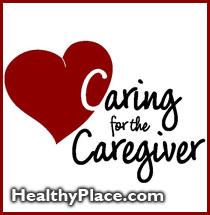Interview with Cliff Bostock
Cliff Bostock, MA, is a doctoral student in depth psychology at Pacifica Graduate Institute and a practitioner of soulwork, a post-Jungian modality of personal growth which is based on the archetypal psychology of James Hillman. His work has been featured in Common Boundary Magazine. He lives in Atlanta where he also authors a weekly dining column and a psychology column. For more information about him consult his website, Soulwork.
Tammie: "How do you describe "Soulwork?"
Cliff: It's a facilitated process of learning to live from a place of deep imagination, in a fully embodied way. It is an aesthetic psychology in which images are treated as autonomous expressions of soul. To follow the image, to use the phrase employed by James Hillman, is to discover the "telos," direction of the soul's path, its destiny. This telos is also clearly illuminated in the body, which is also a metaphorical field.
Tammie: What led you to soulwork?
Cliff: My destiny, basically. As a kid, I couldn't decide whether to be a writer or a doctor. I chose to be a writer, an artist. Then, during my recovery from addictions, I became very interested in transpersonal psychology. I went back to school and got an MA in psychology and trained at the nation's only residential center for transpersonal treatment. Thus, I began to move toward the coalescence of my two childhood impulses --as writer and healer. After a few years of supervised practice as a psychotherapist, I began to feel completely disenchanted with transpersonal and humanistic psychology. They either spiritualized all issues or reduced them to family systems outcomes. I then discovered the soul-based archetypal psychology of James Hillman. My effort, since then, has been to develop a praxis based on his work but one that includes more attention to body and spirit.
continue story below
Tammie: You maintain that inhibitions and blocks to personal growth are more than personal symptoms but are symptoms of the world in which we live. Will you elaborate on that?
Cliff: I mean that what we call pathology is a global or community disorder borne by the individual. Hillman uses the example of eating disorders, I think. They are really "food" disorders. We live in a world in which food is distributed inequitably, in which people are needlessly starving. So-called "eating disorders" to my mind are expressions of that. If you send a compulsive overeater as part of his treatment to do volunteer work in a soup kitchen, the person makes a radical transformation.
The apparent increase of violence among children is, I think, an expression of the way children are hated in this culture. Isn't it bizarre that members of the middle class fill therapy offices to work on the "inner child" while child abuse rages? If you want to work on your "inner child," go do some work with real children. The idealization of the inner child is a kind of reaction formation to anger about the reality of childhood -- which is NOT a state of innocence, which is NOT a time when we usually get what we need. Another example: ADD is an expression of the mania culture requires to sustain capitalism. Also: Borderline disorder, where the self is completely projected outward, is a symptom of the profound relatavizing of postmodern culture.
Tammie: What is deep imagination?
Cliff: This is really an expression of depth psychology -- penetration of the psyche's depths to the archetypal field. In the depths of the psyche, images live autonomously, awaiting personification. When they remain unconscious, they tend to make themselves known as symptoms. The gods are archetypal processes of the imagination in its depths. When they were banished, as Jung said, they became diseases, or symptoms, what we call pathology.
Tammie: You've bravely shared (and received a great deal of angry protests from therapists) that you're disenchanted with psychotherapy. Why is that?
Cliff: This would take a book. Modern psychotherapy -- the praxis developed 100 years ago -- contained two conflicting impulses. One was scientific and the other was aesthetic. Freud was a scientist (as was Jung) but he regarded the narratives of his patients as "healing fictions". Freud recognized the symbolizing and metaphorizing character of the psyche and Jung extended this even further as his career proceeded.
In the time since then, psychology as a healing practice, has fallen increasingly under the influence of science, medicine. Thus, what was recognized by Freud and Jung as metaphorical -- such as unlikely tales of satanic cult abuse, etc. -- has become increasingly literalized in modern practice. "The reality of the psyche is lived in the death of the literal," said Gaston Bachelard. Conversely, the more symptoms are treated as literal, the more soul, psyche, is driven into materialism and compulsion (and the more it has to be medicated). The tragedy of modern psychological praxis is this loss of imagination, the understanding that the psyche by its nature fictionalizes through the exercise of the fantasy we call memory.
My experience with clients, and as a client, has been that psychotherapy reduces symptoms to predictable causes. This is in the "air," so to speak, no matter how much you try to avoid it. Clients come in with their own diagnoses -- from ADD to PTSD and "low self esteem" to "sexual addiction." I am sure that these diagnoses and their prescribed treatment have some merit, but quite honestly I just haven't seen people who tell themselves the narratives of these disorders making much progress.
When I began working with people in my Greeting the Muse workshops for blocked writers and artists, I saw them making rapid progress through the active engagement of the imagination. In these, pathology is viewed as the natural expression of the soul -- the way into the soul. There is no "healing" in the traditional sense, just deepening of awareness, experience, appreciation. The best metaphor is probably alchemy -- where a "conjunction" of opposites is sought, not a displacement of the symptom with something. Jung spoke of the transcendent function, where two opposites are held and transcended. There is no sacrifice of the original quality of the "wound," but its transcendence holds it differently.
I made a personal decision to stop calling myself a psychotherapist because of this experience. On the other hand, I have learned that my work is NOT for everyone. People with dissociative disorders, for example, do not do well in work that uses a lot of active imagination. Nor do I mean to suggest, in the least, that medications aren't of value for many people. But I do MY best work outside the paradigm of medical science. I even regard medication as alchemy.
Tammie: What does "growing down" into life mean to you?
Cliff: It means the rooting of soul in the "underworld." We live in an over-spiritualized culture. Although I value the spiritual, our problem is learning the way our symptoms and our pathology, our shadow motivations, reveal our destiny. The spiritual has become one of our time's greatest means of repression.
Tammie: How does the spiritual repress?
Cliff: Of course, I don't mean that the spiritual inherently represses. It's just my experience that in many forms of religiosity, especially so-called New Age spirituality, problems become spiritualized and not dealt with. The classic example, of course, is the way anger is demonized as everything from sin to "toxicity" when in practice, as you know, its expression is a necessary step toward forgiveness, resolution of grief and any other problem in which the client feels disempowered. Another problem is the way people develop a "things are as they should be" kind of thinking which sabotages activism. Fundamentalism, which has become a political movement the world over, is another example of subsuming authoritarian, controlling agendas in religious dogma.
I hasten to say that, in my view, this is a misdirection of the religious impulse -- a repression, not a bonafide expression of it. Were the spiritual allowed authentic expression in all areas of life, the world would certainly be very different.
Tammie: What would your definition of wholeness be?
Cliff: It would probably be pretty consistent with Jung's idea of individuation -- the shadow brought into consciousness. In all honesty, though, "wholeness" is one of those words that suggests something false to me. My whole point here is that our soul, our nature, is revealed in our wound. I think this is why the "freak" has held such fascination and created such awe in every culture throughout time. I asked a client once who she wanted to be marooned with on a dessert island -- Doris Day or Bergman. The tormented" personality is the one who offers us the most richness and stimulation ---opportunity for soulmaking -- in life.
continue story below
Tammie: Do you believe that pain is a valuable teacher and if so, what has your own pain taught you?
Cliff: I have done Buddhist meditation practices for years, and I think I mainly follow Buddhism's lead. I do not think there is any INHERENT value in suffering. On the other hand, as the Buddha said, life IS suffering. So one is left wanting to avoid needless suffering but knowing that a lot of suffering is inevitable. So, you have the choice of how you imagine your suffering. You can call it a teacher but you don't have to call it inherently a good thing. I am thinking of Viktor Frankl. He might say his experience in the death camps taught him something but he'd never say the Holocaust was of inherent value. I think this distinction is really important. Something of value can be (but isn't always) constellated in your relationship to suffering, but it doesn't make suffering a good thing.
And yet, ultimately and crazily, you can end up in the curious place of thanking the gods for your suffering. -- if you transcend it (and I REALLY want to make the point that some suffering simply cannot be transcended). This idea was unimaginable to me even five years ago. My childhood was very unhappy and lonely. I dealt with it by retreating into my imagination and this fed the part of me that later became a successful writer. I would NEVER tell a parent that to encourage his child's artistic talent he reject and isolate the kid. But I do know this fed my own creativity. It could have severely damaged someone else -- and perhaps had I not had the opportunities I did, it might have damaged me more.
I think it's dangerous, to say nothing of hubris-filled, to ever tell anyone they should appreciate their suffering. One can only hold the space for that possibility. It is not everyone's fate.
Tammie: If your life is your message, then what message do you see your life being?
Cliff: I spent a great deal of my life's energies worried about being an outsider, being unconventional. If my life illuminates anything for people, I hope it's that -- as I said earlier -- these wounds and symptoms, these things we call pathologies that make us different, really are the marks of our character and our soul's path."
next:Kris Raphael on "Soul Urges."
 During each interview, the participants' form of depression was identified using the Diagnostic Interview Schedule, a common test in epidemiological research of the elderly. Four types emerged: subthreshold depression (207 participants), dysthymia (a mild, chronic form of depression) (25 participants); major depressive disorder (MDD) (23 participants); and a combination of dysthymia and MDD (22 participants).
During each interview, the participants' form of depression was identified using the Diagnostic Interview Schedule, a common test in epidemiological research of the elderly. Four types emerged: subthreshold depression (207 participants), dysthymia (a mild, chronic form of depression) (25 participants); major depressive disorder (MDD) (23 participants); and a combination of dysthymia and MDD (22 participants). Abstract: A review of published studies reveals a serious deficit in scope of eating disorders among African American women. While the "Prevalence of Eating Disorders Among African American Women" (Mulholland & Mintz, 2001), and "A Comparison of Black and White Women With Binge Eating Disorder" (Pike, Dohm, Stiegel-Moore, Wilfley, & Fairburn, 2001) offer substantial findings in an area of under representation, the findings of these studies leave many vacancies in the true picture of eating disorders among African American women. Sufficient examination of the relationship of familial roles, cultural influences, and unique stressors to African American women are not prevalent in the available studies and are not evaluated as substantial influences on maladaptive eating regulation responses.
Abstract: A review of published studies reveals a serious deficit in scope of eating disorders among African American women. While the "Prevalence of Eating Disorders Among African American Women" (Mulholland & Mintz, 2001), and "A Comparison of Black and White Women With Binge Eating Disorder" (Pike, Dohm, Stiegel-Moore, Wilfley, & Fairburn, 2001) offer substantial findings in an area of under representation, the findings of these studies leave many vacancies in the true picture of eating disorders among African American women. Sufficient examination of the relationship of familial roles, cultural influences, and unique stressors to African American women are not prevalent in the available studies and are not evaluated as substantial influences on maladaptive eating regulation responses.  The term was extracted from Greek mythology which depicted Adonis as half man and half god who was considered the ultimate in masculine beauty. Adonis' body, according to sixteenth-century perspectives, was representative of the ultimate in male physique. According to mythology so beautiful was his body that he won the love of Aphrodite, queen of all gods.
The term was extracted from Greek mythology which depicted Adonis as half man and half god who was considered the ultimate in masculine beauty. Adonis' body, according to sixteenth-century perspectives, was representative of the ultimate in male physique. According to mythology so beautiful was his body that he won the love of Aphrodite, queen of all gods. Be gentle with yourself.
Be gentle with yourself.